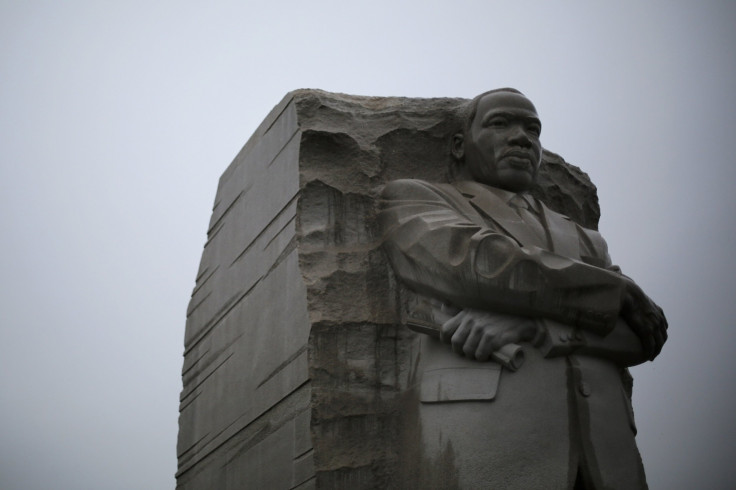Martin Luther King Cheated On His Wife & Other Lesser-Known Facts About The Civil Rights Leader For MLK Day

One of the easiest things to forget about Dr. Martin Luther King Jr. is that he was just a person. One of the most influential people of the 20th century, no doubt, but a person with unique flaws and quirks that made him different from the Christ-like figure he’s often portrayed as today.
At the time of King’s assassination on April 4, 1968, he was still the personification of the civil rights movement in the United States. But those near him said he appeared to have lost a step, in part because of conflicts in his inner circle of advisers and a growing estrangement from his former ally President Lyndon B. Johnson over the Vietnam War.
Five years after his famous “I Have A Dream” speech, though, and 40 years before the first African-American became president, King stepped onto the balcony outside his room at the Lorraine Motel in Memphis, Tenn.
King was on the balcony sneaking a cigarette
When racist assassin James Earl Ray aimed his rifle sight at King, he almost certainly saw the civil rights leader doing something King's children never saw him doing: smoking. King was a lifelong smoker, although very few – if any – pictures exist as proof because he never smoked in public. King didn’t want his family to know about the habit.
After King was shot, his advisers stopped the bleeding while one of them, Dr. Billy Kyles, removed a pack of cigarettes from King’s pocket.
The Kennedy brothers allowed FBI Director J. Edgar Hoover to wiretap King
In July 1963, one month before King’s March on Washington, Hoover personally convinced Attorney General Robert Kennedy – brother of the president – to let the FBI install listening devices in King’s home, office and phone lines. Hoover created the FBI in his own image decades before, and by the 1960s Hoover had become paranoid and bitter.
Five years of government monitoring never provided proof that King associated with Communists, only evidence of Hoover’s bigotry in the form of racist memos from the FBI director to his subordinates.
King was a serial adulterer
While the ethical reasons for the FBI’s monitoring of King were murky (at best), the recordings do make up much of what we now know about the man’s personal life. King had engaged in so many extramarital affairs that his wife, Coretta Scott King, had reportedly become disillusioned with their marriage.
FBI monitoring devices recorded audio of King during a tryst at a Washington, D.C., hotel, eventually sending the tape to Mrs. King in an effort to discredit him in his own home. King even spent the last night of his life with a woman who was not his wife. In the chaos outside the Lorraine Motel, his advisers told the young woman to stay out of the ambulance to avoid tarnishing his legacy.
King’s right-hand man, Ralph Abernathy, wrote in his 1989 autobiography that the staff “all understood and believed in the biblical prohibition against sex outside marriage. It was just that he had a particularly difficult time with that temptation.” Abernathy also wrote that King had a “weakness for women” while Johnson – who considered King’s criticism of Vietnam a personal betrayal – called him a “hypocritical preacher.”
At the time of his death, King had the heart condition of a 60-year-old man
Negotiating with government leaders while trying to unite poor people and fend off death threats would be enough to stress anyone out. King’s autopsy results revealed that his heart appeared to be from someone 21 years older. His poor eating habits almost certainly contributed, with aides reporting that they had to monitor the leader’s diet and often joked with him about his ballooning weight.
Conservative politicians have claimed King was a Republican
The modern Republican Party’s inability to attract a large number of black voters has inspired campaign strategists to capitalize on a rumor that King stood in their ranks. The idea began after a 2009 interview in which King’s niece, the Rev. Alveda King, speculated her uncle was a registered GOP voter, a claim later refuted by his son. There seems to be scant documentation to prove either family member right, but pundits on both sides of the aisle can probably agree his image is more significant as a humanitarian.
© Copyright IBTimes 2025. All rights reserved.





















